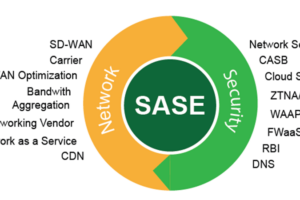In the financial world, a Demat account plays a crucial role in facilitating the smooth and seamless trading of securities. Demat, short for “Dematerialization,” is a process through which physical certificates of securities like shares, bonds, and mutual funds are converted into electronic form. In Hindi, a Demat account is commonly referred to as “डीमैट खाता” (Demat Khata), and it has revolutionized the way investors hold and trade their investments.
Also read demat account kya hota hai
- Dematerialization of Securities:
Traditionally, investors used to hold physical certificates of securities, which posed several challenges like the risk of loss, theft, and cumbersome paperwork. Dematerialization eradicated these concerns by converting physical certificates into electronic form. A Demat account acts as a secure repository for holding these electronic securities.
- The Role of Depository:
Depositories are institutions responsible for the conversion of physical certificates into electronic form and vice versa. In India, there are two depositories: National Securities Depository Limited (NSDL) and Central Depository Services Limited (CDSL). They hold investors’ securities in Demat form and enable smooth transactions.
- Opening a Demat Account:
To open a Demat account, investors need to approach a Depository Participant (DP), who could be a bank, financial institution, or brokerage firm registered with the depository. Investors need to submit required documents like identity proof, address proof, and PAN card, along with the account opening form.
- Features of Demat Account:
- Safe and Secure: Demat accounts provide a safe and secure way to hold investments electronically, eliminating the risk of physical damage or loss.
- Easy Transactions: Investors can easily buy, sell, or transfer securities through their Demat accounts, simplifying the trading process.
- Eliminates Paperwork: Dematerialization eliminates the need for physical paperwork, making the process more efficient and eco-friendly.
- How Dematerialization Works:
When an investor purchases securities, the relevant number of shares or units are credited to their Demat account. Similarly, when they sell or transfer securities, the corresponding number of shares or units are debited from their Demat account. This process ensures a seamless and transparent transaction.
- Charges and Maintenance:
While opening a Demat account is usually free, investors need to pay certain charges for transactions and account maintenance. These charges may vary based on the Depository Participant and the services offered.
In conclusion, a Demat account, known as “डीमैट खाता” (Demat Khata) in Hindi, is an essential tool for investors in today’s digital age. It allows them to hold their securities in electronic form, providing safety, convenience, and ease of transactions. Dematerialization has made the process of buying, selling, and holding securities much more efficient, making it an integral part of the modern financial ecosystem.










